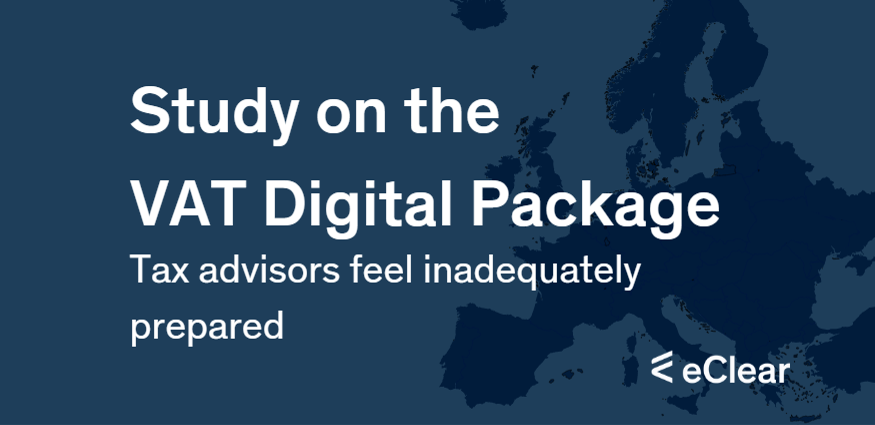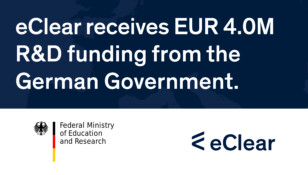The EU VAT digital package has been in force since 1 July 2021. With new regulations, such as the the abolition of supply thresholds in EU member states and the 22-euro duty-free limit for imports into the EU or even the new regulation for marketplaces, it affects cross-border trade and thus tax advisors with clients who are active in this area.
“Due to the introduction of the EU-wide threshold of 10,000 euros, above which B2C sales of goods to other Member States must be declared in the respective country of destination, many more traders will have to comply with precisely this regulation in the future,” says Annett Schaberich, in-house tax advisor and Vice President Tax Compliance at eClear. “For tax advisors and their clients, this means they will have to deal with country-specific tax rates for different products and the new reporting obligations, among other things.”
Inadequate provision of information by public bodies
The eClear survey shows that tax advisors do not feel well-informed. 40% of respondents said that they felt insufficiently met and prepared by the provision of information by public bodies. A good fifth (22%) even classify the provision of information as “very poor”. Only 10% of tax advisors feel well or very well-prepared. There are apparently gaps in knowledge among clients as well: On a scale of 1 (not at all present) to 10 (very present), the tax advisors gave an average of 3 to the question of how current the topic of EU reform is with their clients.
“Ignorance can be expensive for sellers,” adds Annett Schaberich. “The EU reform means additional bureaucratic and administrative work for tax advisors and clients. Merchants have to deal with their respective sales and, with their tax advisor, decide on how to tax the sales in the future. Due to the numerous new regulations and exceptions, it is time to deal with the topic intensively.
„The EU reform means additional bureaucratic and administrative work for tax advisors and clients. “
Automated processes bring relief
40% of the responses show: “knowledge of local tax rates” is the most preoccupying issue for tax advisors in this context – followed by topics such as “one-stop-shop and import one-stop shop”, “marketplace liability”, and “customs declaration and representation”. Knowing local tax rates is challenging due to the complexity of the EU VAT system: children’s clothing is reduced in Luxembourg, fruit juice in Poland, red wine is reduced in Portugal, and milk in Germany. Due to the EU VAT reform, traders must correctly apply the country-specific VAT rates. The so-called “EU VAT Rates database” of the European Union was supposed to help. However, the database with VAT rates for the EU-27 needs to be completed and corrected. A competitive disadvantage for online traders and a stumbling block for tax advisors. The eClear VATRules database offers a solution here.
“Automated processes can relieve tax advisors and their clients. eClear’s VATRules database provides correct tax rate information and leads to correct tax filings,” says Lea-Luisa Blase, VAT Consultant at eClear. “With the VATRules, we now have more than 1.2 million tax codes, including all special cases. These are certified and permanently updated. Once assigned to the merchant’s products, he receives the applicable tax rates on demand in his respective system environment, which is unique.
The survey was conducted between 22 June and 2 July 2021. A total of 50 tax advisors were surveyed online by eClear.







